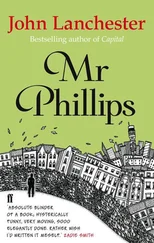She found it hard to leave the Help to get on with it, and spent the first few days hovering over the cook and making suggestions which, to judge from his body language, he didn’t entirely appreciate. A proud man, you could see that. And yet by the end of the week they were cooking together, despite Shoona telling her she was an idiot and the whole point of the holiday was not to be doing the very exact same thing she spent all her time doing when she was on the Wall. Mary’s reply: ‘But I want to.’ There’s never any answer to that.
Another question pressed on me while we were on holiday. It was: when did Cooper and Shoona have sex? This was a mystery at barracks, and even more so here. We had asked them if they wanted a tent of their own – well, I say we, it was Hifa asking Shoona in private – and they had said no. Fine, but when and where did they do it? It must have involved sneaking off outdoors, or round the back of buildings, or something. They never made any public gestures of affection and were in no obvious sense a couple, except they were.
My own plans in that direction came to nothing. I tried a couple of times to go off for walks with Hifa, but one of the problems with camping, it turned out, was that there was almost no privacy. Every time I made a sneaky suggestion – fancy a trip to the pub? fancy seeing what’s over that hill? fancy a walk down to the nearest village? fancy borrowing a couple of rods from the landlord and going to try some fishing? – she would either immediately ask the others if they wanted to come too, or they would see us heading off and join us without asking, as if everyone had automatic permission to join in anything anyone else was doing. I felt pathetic, as if I’d gone back to school and wasn’t all that far away from the stage of sexual development where boys’ way of showing girls that they like them is to go up to them and pull their hair and then run to the other end of the room.
I still often think of that week. Maybe that’s in part because of what happened afterwards. But at least some of it is because it was a magical seven days. I can’t say it was the happiest time I spent on the Wall, because the whole point is that we weren’t on the Wall, we were on holiday; but it was the best time I ever spent with my new Wall family. We walked, talked, ate, read. Drank a fair bit but never so that we were too hungover to enjoy the day after. The landlord let us use the bathrooms of the pub; he even let us wash and shower there. We got to know each other differently. Being a Defender was a personality people put on when they went to the Wall. Their non-Wall self was closer to their real self, maybe. Or maybe not, I now think, maybe there isn’t a real self, just different versions of us we wear in different settings and with different people. The me who deals with my parents is not the me who talks to Hifa and that is not the me who takes orders from the Captain and that is not the me I am inside myself during a shift on the Wall, counting down the minutes to the end of the twelve hours.
On the last evening I finally managed to get Hifa to go off on her own with me, by sidling up to her, raising my eyebrows and asking, ‘Walk?’ And just like that we set off down the hill from our camp. We walked down and around a col, then up to the top of a long valley and stood looking back down at the view. We were across the far side of the bowl of hills from where we were camping and we could just see the pub. There was a final-night feeling, that back-to-school, back-to-reality vibe which you always get in the moments before you set off home at the end of a successful holiday. I thought: this is my moment to say something. Or maybe, don’t say anything, just make my move? Hifa was panting slightly from the exertion of walking the last stretch uphill, her hair pulled back by her knitted cap, her skin flushed, her lips full and pink.
‘When I grow up I’m going to be rich enough to have Help,’ Hifa said, not forcefully but as if she was daydreaming. And just like that I felt my moment go. She had said something which I’d been thinking, but felt was too private to say. Wanting to have Help was on my secret wish list, or had been, and this experience did nothing to change that. If anything it made it seem more desirable. I had thought that Help was a status symbol, a technique for signalling that you’re rich. But the thing I learnt that week was how much nicer life could be if you had somebody else to do all the boring and difficult bits for you. Having Help was like having a life upgrade. I also realised this was one of the differences between me and Hifa. Because she didn’t think she’d ever be rich enough to have Help, she felt free to talk about it, disguised as a joke. Because I thought I would one day be rich enough, because my whole sense of myself was that I was going to be the kind of person who was rich enough, I’d never make a joke about it. That would be giving away real information about who I was and what I wanted.
‘Time to go back, the sun’s about to go down,’ she said, turning from the view. I could lunge? No, too late, too desperate. I had missed my chance. I also thought, wow, it’s funny how I don’t really know anything about you.
The last morning came: back to reality. We packed, and headed off to the train station to make the trip to the Wall. Our packs, which had felt light on the way to the holiday, were heavy as we set out on the return journey. We’d spent the whole week talking and arguing and joshing, but we were quiet on the train. I was still brooding on the issue of Help when we said goodbye at the big terminus in London. There was something I’d been thinking about that week. I’d never really thought about Help before, either having it or being it, and the linked question of what their lives had been like before and after the Change, and the journeys they had made to get here, and how they had got over the Wall, and what it had been like to be among the Others and now to be Help. I could just about imagine burning sand, a huge yellow sun close overhead, salt water stinging in cuts, the weak being left behind, the bitter tastes of exile and loss, the longing for safety, the incandescent desperation and grief driving you onwards … no, I couldn’t really imagine. And yet here they were.
I don’t know why the thing I wanted to know felt like an awkward question, but it did, and I’d been storing up my nerve to ask. At the station, the Help were leaving us to go to their next assignment. As we Defenders had agreed, I took the cook aside for a moment to thank him and slip him an envelope with a tip for him and his partner – you aren’t supposed to do that, but we thought it was the right thing. He took it with an inclination of his head. The only time I’d seen him smile, or even change expression, was on the last couple of days of the holiday, when he was cooking with Mary. This was my last chance. The station was busy and crowded, which created a sense of intimacy around our talk: we couldn’t be overheard.
‘I have something I wanted to ask,’ I said. The Help was a thin man, economical in movement, and whenever you spoke to him he stayed impassive, his hands by his sides. ‘What happened to the world, we here have a name for it, we call it the Change. But what I’ve been wondering is what other people call it, if there’s a word for the same thing, or if it’s just something that happened. I hope you don’t mind me asking, but is there a word for the Change, what we call the Change, in your language?’
‘Coo-ee-shee-a,’ I thought he said. I didn’t know if I’d heard that correctly and had no idea what it meant, but there was something in his eyes that stopped me from asking more. He picked up his bag and he walked off with his partner, not saying goodbye and not looking back.
Читать дальше












